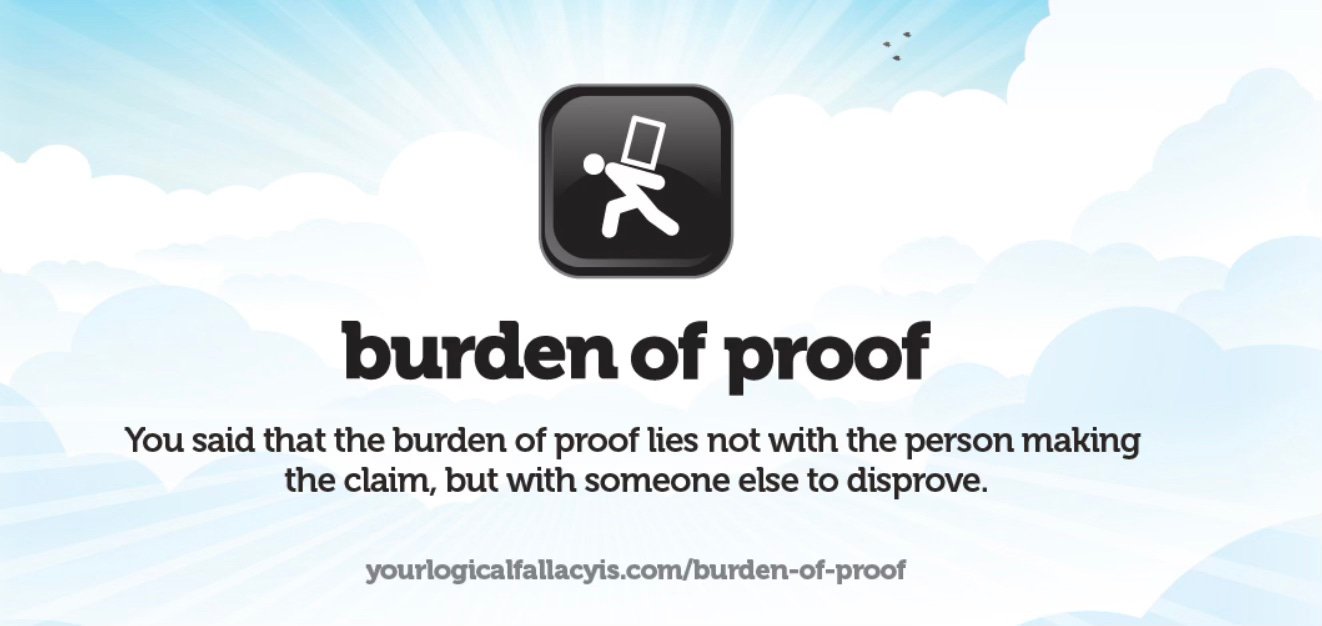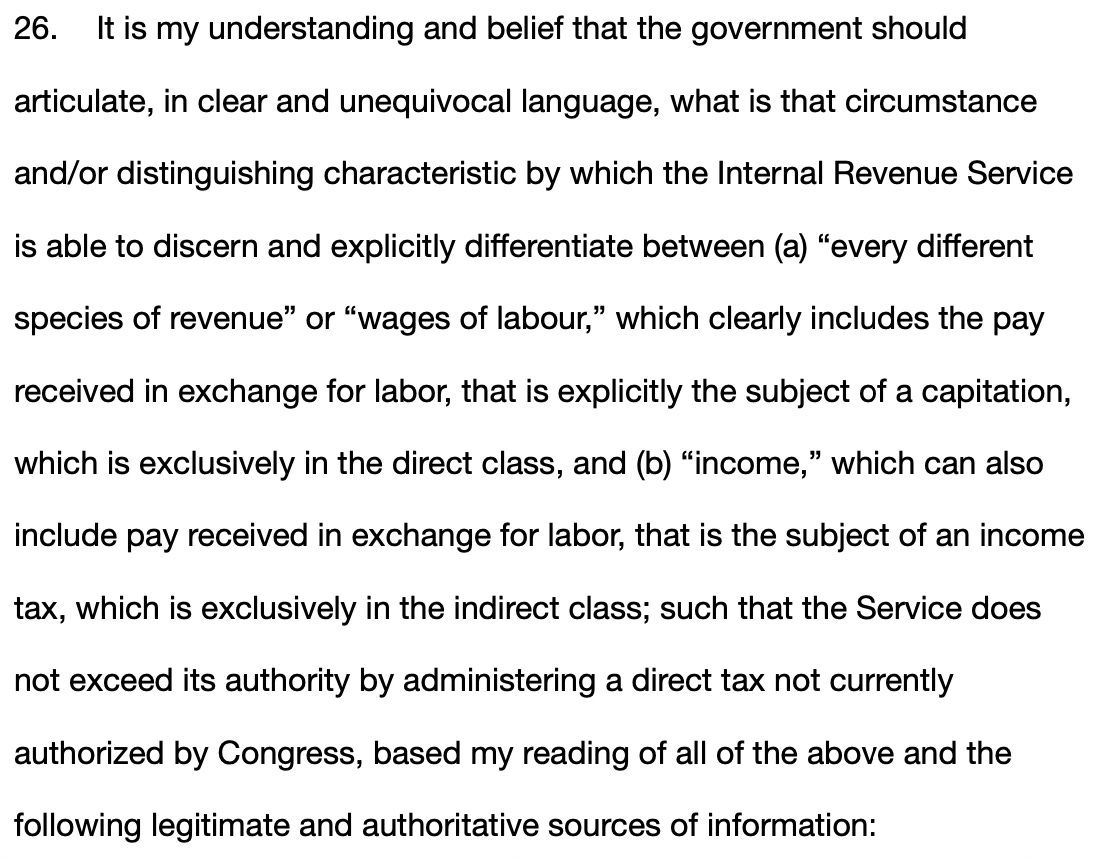the way this particular fraud works is first:
that you confuse yourself with the language so that you do not question the true nature of the income tax
using the word “income” to describe everything that comes in;
using their custom-defined term “wages” to describe what you get paid for your work, when that term only applies to “income” and not everything that comes in;
using their custom-defined terms “employee,” “employer,” or “employment” to describe your activities or who you do work for and who pays you, when these terms only apply to specific income-taxable activity
second:
they pretend that there is nothing that is out of scope of the revenue laws they are authorized to administer, when everything that comes in that is not clearly and distinctly “income” is obviously out of scope of the revenue laws.
> > > > a.k.a. scope creep.
and third:
they pretend like you have the burden to prove that what you received is not “income” (yep, they claim that you have to prove a negative) as opposed to their actual written rules that state clearly that they are the ones who have to burden to prove that what you received is in fact “income.”
See Spreckels Sugar Refining Co. v. McClain, 192 U.S. 397 (1904)
Keeping in mind the well settled rule [“well settled” means that it is not in doubt or dispute] that the citizen is exempt from taxation unless the same is imposed by clear and unequivocal language [nowhere has it been explained to me how the government knows that the pay I received in exchange for my labor is in fact specifically and distinctly “income,” as opposed to the pay in exchange for labor that is the subject of a direct capitation tax], and that, where the construction of a tax law is doubtful, the doubt is to be resolved in favor of those upon whom the tax is sought to be laid [if the government cannot explicitly articulate the circumstance and/or distinguishing characteristic that allows them to determine the payment I received is within scope of the internal revenue laws, then the “well settled rule” is that the doubt is to be resolved in my favor].
See Daines v. ALCATEL, SA, 105 F. Supp. 2d 1153 (E.D. Wash. 2000)
Defendants are correct that the 1099s, on their own, do not create tax liability. Form 1099 is an informational return, filed by a third party to the relationship between the IRS and the taxpayer, which reports income as that third party believes it to be [a W-2 is also an informational return, filed by a third party to the relationship between the IRS and the taxpayer, which reports income as that third party believes it to be]. The Internal Revenue Code makes it clear that a Form 1099 [or any informational return, including a W-2] is not the final word on what a taxpayer's taxable income is.
and
... The Tax Court has held that a Form 1099 [or any informational return, including a W-2] is insufficient, on its own, to establish a taxpayer's taxable income. See Estate of Gryder v. Commissioner, T.C. Memo. 1993-141, 1993 WL 97427, 65 T.C.M. (CCH) 2298, T.C.M. (RIA) 93,141 (1993), citing Portillo v. Commissioner, 932 F.2d 1128 (5th Cir.1991). See also Portillo v. Commissioner, 988 F.2d 27, 29 (5th Cir. 1993) (a Form 1099 is "insufficient to form a rational foundation for the tax assessment against the [taxpayers in this case].").
and
Thus, while a Form 1099 [or any informational return, including a W-2] can serve as the basis for the inception of an IRS investigation, it cannot and does not, on its own, create tax liability or establish how much income the taxpayer actually received.
See 26 USC 6201(d) Required reasonable verification of information returns
In any court proceeding, if a taxpayer asserts a reasonable dispute with respect to any item of income reported on an information return filed with the Secretary under subpart B or C of part III of subchapter A of chapter 61 by a third party and the taxpayer has fully cooperated with the Secretary (including providing, within a reasonable period of time, access to and inspection of all witnesses, information, and documents within the control of the taxpayer as reasonably requested by the Secretary), the Secretary shall have the burden of producing reasonable and probative information concerning such deficiency in addition to such information return.
See Respondent’s Response to Petitioners’ Interrogatories, Interrogatory 14
Response: Respondent will comply with the requirements of I.R.C. § 6201(d) at trial.
the attorneys for the irs agreed during the hearing on their motion for summary judgment that we correctly followed their procedure for “assert[ing] a reasonable dispute with respect to [the] income reported on [the] information return[s]” filed by the third parties in our case.
[the correct procedure for asserting a reasonable dispute with respect to alleged “income” reported by third parties on forms 1099 or w-2 is to include with your return the form 4852 as shown here. make sure you only include correct forms with your 1040. if the 1099 or the w-2 is not correct, then do not include it with your filing. only include the correct form 4852.]
they acknowledged that the informational returns filed by third parties in our case do not establish how much “income” we received.
they also stated they would comply with the requirements of § 6201(d) at trial, yet they provided no evidence of their claims that i received any “income.”
the irs also stated in writing that no investigation or examination was conducted with respect to any “income” we are alleged to have received but have disputed for tax year 2020.
they just declared it to be so and pretend that nothing is out of scope and that i have burden to prove otherwise.
maybe they just didn’t think i would object?
maybe they already know that most people will not object, even if they have all of this knowledge and information.
and that’s why they are emboldened to behave in such a clearly tyrannical manner.
maybe the only way they will ever stop behaving criminally is if more of us stand up and object.
thoughts?





